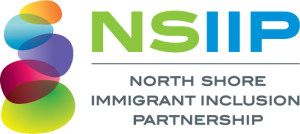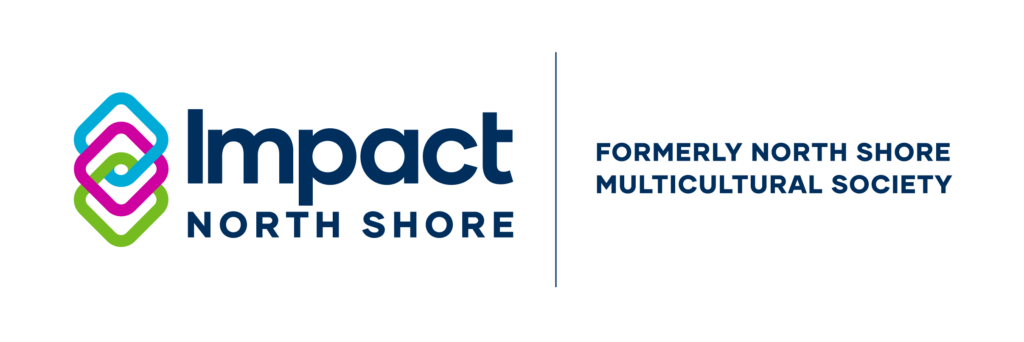NSIIP Access to Information & Services Working Group
Goal
Immigrants and community stakeholders have access to current and relevant information and resources to
facilitate settlement and integration.
Background
Objectives
Our Achievements
Resources
Members
Background
Importance of adequate programs & services
- In general, people who used settlement services are more likely to perceive a better-than-expected settlement experience.
- 61.8% of immigrant survey respondents used settlement programs or services to help with their new life in Canada.
- Only 50% of community service providers believe that newcomers have access to adequate settlement and language services.
- 40% of employers are concerned that immigrant applicants will not have the language skills and soft skills (e.g. communication skills) to do the job. Employers suggested “providing more post-employment coaching and support for immigrants on soft skills.
Dissemination of information about services
- Only 36.4% of community service providers believe “newcomers have a good understanding of the community services available on the North Shore.”
- Just over one third (36.1%) of immigrants surveyed did not know there were services to help.
- 62.7% of respondents learned about settlement services from friends or family versus 34.4% through internet searching, 34.4% through the CANN package received at airport, and 24.5% of through the WelcomeBC site.
- Non-official language speaking immigrant participants are most likely to suggest having more information about key services in different languages and better interpretation services.
Regional disparities in service access
- Immigrants in the District of North Vancouver and District of West Vancouver report facing greater difficulties in accessing employment services.
Objectives
Objectives:
- Increase service coordination & information/service access
across the North Shore. - Build awareness of North Shore settlement patterns & COVID-19 trends, and assess how to best collect and compile data to track newcomer access & inclusion.
- Initiate projects that support equitable, culturally safe access to health & mental health services for vulnerable immigrants.
- Support community-led research that builds capacity to embed equity lenses & frameworks across North Shore service sectors.
Our Achievements
2021/22
- Hosted a Lunch & Learn webinar in July 2021 to share information about the vulnerabilities of and support services available to temporary permit holders on the North Shore
- Created a Translation & Interpretation services fact sheet for North Shore service providers
- Supported the dissemination of the report Moving Towards Racial Equity: An Environmental Scan of Models & Frameworks highlighting foundational principles, promising practices and key actions for advancing racial equity
- Hosted an NSIIP Service Provider’s Forum in Feb 2022. The event shared data about the impacts of COVID-19 on the lives of North Shore im/migrants and explored opportunities for integrating trauma informed practices in service planning for newcomers
2020/21
- Liaised with North Shore library partners to access and distribute technology (tablets and cell phones) to vulnerable NSMS clients through the Telus “Take It Home” technology grant
- Developed a Multilingual resource sheet including important resources and information on health, mental health, and other topics related to COVID-19
- Organized a virtual 2-part Forum in May & July 2020) focused on experiences of and supports for Multicultural Seniors in age-friendly North Shore communities. Event was designed & hosted in partnership with Lionsview Seniors Planning Society, Silver Harbour Seniors Activity Centre, and City of North Vancouver
- Hosted a virutal 2-part NSIIP Service Provider’s Forum in Feb 2021. Agenda included presentations on the impacts of the COVID-19 pandemic on immigration trends in Canada and the lives of North Shore im/migrants
- Collaborated on the dissemination of NSMS client survey regarding the impact of COVID-19 on service usage & community attachment
- Developed a Legal Services on the North Shore resource sheet including important information on available multilingual services
2019/20
- Hosted the NSIIP Service Provider’s Forum in Nov 2019: Working Together for Improved Immigrant Inclusion. Agenda included presentations about updates demographic information and workshops about service planning for unique populations (early years, seniors, temporary permit holders)
- Created and distributed a language and literacy survey in collaboration with Capilano University
- Delivered Community presentations on immigrant demographics and implications for data-informed services planning
- Updated NSIIP online inventory of local diversity trainers
- Conducted community research on North Shore immigrant service utilization & community attachment/belonging
2018/19
- Organized and co-hosted a half-day forum in Jan 2019- “Brave Conversations: Shifting Systems towards Inclusivity”, with the Centre for Diversity & Innovation (CDI)
- Delivered community workshop on Clear Language and Design (CLAD) principles for North Shore service providers
- Printed and disseminated multilingual business cards for emergency first responders on the North Shore
- Presented demographic findings and immigration trends to municipal representatives
2017/18
- Developed North Shore Quick Look: Demographic Info Sheet (PDF)
- Delivered community presentations on immigrant demographics
- Continued piloting literacy audits at North Shore organizations
- Concluded social media pilots at North Shore organizations (report, recommendations)
- Organized We Speak Translate: Introduction and Policy Discussion session through partnership with Inter-Cultural Association of Greater Victoria
2016/17
- Updated information on North Shore services for www.NewtoBC.ca (City of North Van, District of North Van, District of West Van)
- Launched pilot literacy audits at North Shore organizations
- Researched new ways of communicating with newcomers via social media, with specific attention to WeChat, Telegram, and Kakaotalk to improve outreach to Chinese, Iranian, and Korean clients
- Organized two NSIIP forums in March 2017 and November 2017. Agenda included presentations and training, and sharing of updated demographic information and the newly released 2016 census data
Resources
- Translation & Interpretation Factsheet (2021) [PDF]
- Multilingual COVID Resources (2020) [PDF]
- Legal Resources Factsheet (2020) [PDF]
- North Shore Immigration Quick Look (2018) [PDF]
- Diverse North Shore – Demographic Map (2018) [PDF] [Interactive]
- North Shore English Language Learner Students (ELL) – Demographic Map (2018) [PDF] [Interactive]
- North Shore Immigrant Seniors & Children Demographics (2018) [PDF] [Interactive]
- Report from social media pilot at the North Shore Multicultural Society (2017) [PDF]
- Recommendations on reaching newcomers through alternate social media platforms (2016) [PDF]
- Diversity Trainers List (2016) [Online]
Members
- Alison Campbell, North Vancouver District Library
- Ana Fortes da Silva, Capilano University
- Ellen Clague, Parkgate Community Services Society
- Jill Lawlor, District of West Vancouver
- Julia Kaisla, Canadian Mental Health Assiciation (North & West Vancouver Branch)
- Margaret Broughton, Vancouver Coastal Health
- Mark McLean, West Vancouver Police Department
- Navaz Daruwalla, Family Services of the North Shore
- Seogae Yoo, Impact North Shore
- Shideh Taleban, North Vancouver City Library
- Tunde Getaneh, North Shore Community Resources
The North Shore Immigrant Inclusion Partnership honors and recognizes that our collective work is carried out on the traditional, ancestral, unceded, and occupied territories of the Skwxwú7mesh (Squamish), Səl̓ílwətaɬ (Tsleil-Waututh), and xʷməθkʷəy̓əm (Musqueam) Peoples.
Copyright ©2019 NSIIP.ca. All rights reserved.


